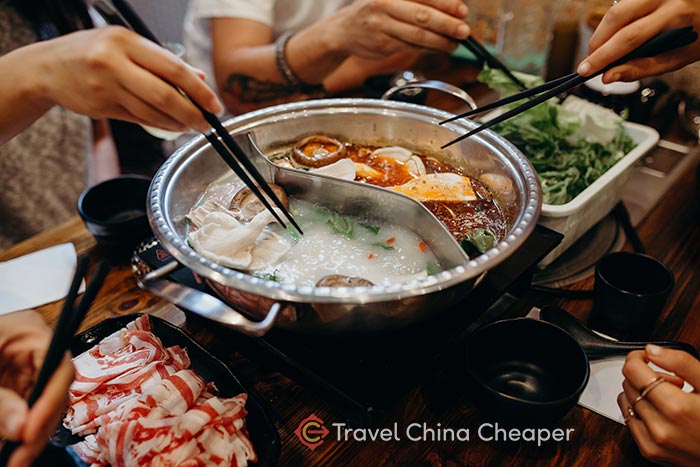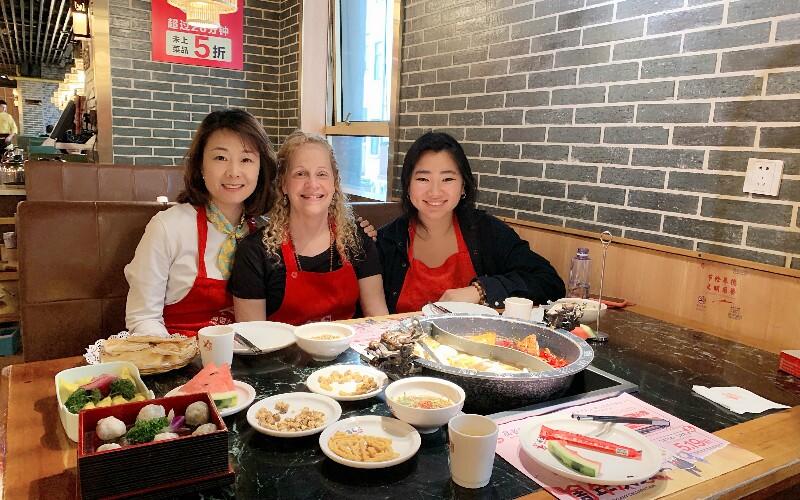20 Excellent Suggestions To Tasty Delights From China
20 Excellent Suggestions To Tasty Delights From China
Blog Article
Top 10 Tips To Shop In China Regional Spezialties
1. Do your research before you goTip Find out what each region is known for. Suzhou, Jingdezhen and Tibet are all famous for their respective items.Pro: This tool helps you concentrate on the shopping goal, and decreases the amount of time wasted.Con: Must be ready and aware of the main points of the region.
2. Locally buy to guarantee authenticityTips: Buy items directly from the place of origin to ensure the authenticity and quality of the item.Pro: Supports local artisans and helps reduce counterfeiting.Cons: Visiting less touristy or rural areas is feasible.
3. Explore the Artisans' Workshops or visit an artistPick small workshops or hubs for artisanal over the usual shops.Pro: Offers a greater understanding of the art and assures that you're purchasing directly from the creators.Con: Products created by hand may be costly and difficult to negotiate.
4. Understanding the Cultural SignificanceDiscover the history of items like jade or cloisonne carvings.Pro: It adds value to your purchases and enhances the value of your purchases.Pro: It may take some time for you to comprehend the cultural subtleties.
5. Verify the QualityTo make sure you're happy with the quality, make sure that things like tea, ceramics or even embroidery are up to your standards.Pro It will make sure that you get exactly what you are paying for.Pros: requires expertise or assistance to identify high-quality products.
6. Beware of products that are mass-producedChoose unique handcrafted items over mass-produced copies.Pro: You'll be able to take home an extremely valuable and unique souvenir.Con: Genuine craftsmanship tends to be more expensive and difficult to locate.
7. Compare PricesTips: Comparing prices for the same product across multiple shops and stalls is a good idea.You can determine reasonable prices to avoid paying excessively.Con: Time-consuming in big markets, and especially.
8. Teas from Trusted SuppliersTip A tip: If you live in a region like Hangzhou, Fujian or Longjing Tea (Dragon Well), or Tieguanyin Tea, make sure you visit tea shops that offer these teas.Pro: Assures authentic and high-quality.Con: High-quality tea can be expensive and difficult to confirm for novices.
9. Local Customs Learn about themTIP: In some areas sellers may require you to negotiate or view haggling as an integral part of the experience.Pro: Provides a stimulating culture to shopping.Con: Uncertainty about customs can cause awkward interactions.
10. Pack CarefullyYou should plan the method of transporting bulky or fragile regional specialties like silk or ceramics home.Pro: It protects the items and ensures that they arrive in good condition.Cons: It can create logistical challenges and add costs to shipping.
Advantages of Shopping for Regional SpecialtiesUnique Souvenirs: Regional specialties are exclusive items that cannot be found elsewhere.Cultural Immersion. Shopping for local products will connect you to the region's heritage and workmanship.Direct purchases of artisans help local economies.Pros and Cons of Shopping Regional SpecialtiesAuthenticity: Risk of purchasing counterfeits or versions of lower quality.Transporting fragile or large items isn't easy.Higher prices: Handcrafted products, in particular they can be quite expensive.Follow these tips to ensure you make meaningful and lasting purchases during your journey to China. Have a look at the top rated the best food destinations in China for website info including savor the flavors of China, tasty delights from China, uncover China food traditions, top Chinese food experiences, a tour of China regional cuisine, taste the best dishes across China, taste the best dishes across China, the flavors of Chinese cuisine, food guide to China best cities, culinary wonders of China and more.
Top 10 Tips For Respect For The Culture When Visiting Famous Temples In China
1. Follow temple etiquetteTip - Each temple has its specific rules. Respect local customs and adhere to them, whether they are performing a bow or offering an incense offer during ceremonies.
Pro: It is a sign of respect for the temple and it's religious practices.Con: You might feel overwhelmed if unfamiliar with the temple's practices and etiquette.2. Dress modestlyDress in a way that covers the shoulders, arms and legs. Some temples provide shawls and scarves as a means of covering the visitors.
Pro: Shows reverence for the sacred space and avoids offending locals.Cons: It may be uncomfortable in the hot summer months. It is important to wear extra clothing.3. Calmly and firmly remain silentTip: Maintain a quiet and calm attitude, especially in sacred areas. Speak quietly. Avoid loud conversations.
Pro: This preserves the sanctity, respecting worshipers and the place.Con: Silence could be uncomfortable or unnatural in crowds of tourists.4. Avoid Disrupting WorshippersTip: Do not interrupt people who are praying or contemplating. Let them finish their rituals.
Pro: Takes into consideration the religious practices and beliefs of other individuals.Con: You may feel you're tempted to interact with other worshipers however, it's crucial to stay clear of distractions.5. Don't touch sacred objects.TIP: Don't touch altars, statues or other sacred objects, unless expressly permitted. These objects are often considered sacred.
Pro Respects culture and the sacredness of temples.Pro: It may be tempting to try touching objects for photos or curiosity.6. Show Deference to EldersTip: In many temples, elderly people are held in a position of respect. When interacting, be extra polite and respectful.
Pro: Respecting elders is an important tradition that must be respected.Cons: It can feel strange if you are from a culture that doesn't value the concept of age.7. Follow the Locals' LeadTips: If you are unsure about how to behave behaving, look at how people in the area behave and then emulate their behavior in showing you how to make an offer or where to go.
It allows you to be more comfortable and make sure to follow the right guidelines.Con: It may require a bit of time to observe and learn the techniques.8. Ask for Permission Before taking photosRequest permission prior to taking pictures in any location, but especially in those which are populated by people praying. Some temples may prohibit photography entirely.
Pro: Represents respect for privacy of people and the sacredness of the space.Con: Can result in missed opportunities for photographs, particularly when you are at stunning spots.9. Give your gifts with dignity and respect.Don't go overboard when you make an offering. Don't give out extravagant gifts, except for occasions that require them.
Pro: Conforms with local customs. Does not create a feeling of unbalance or lack of respect.Cons: If you don't have local advice You may be uncertain about the most effective options.10. Be aware of your behavior and languageTip: At all times, maintain a respectful and composed demeanor. Avoid using inappropriate words or making jokes within sacred space.
Pro: Provides a tranquil and peaceful environment for visitors and worshippers.Con: Although a laidback or humorous style of behavior may seem instinctive, maintaining composure and poise is vital.Pros of Cultural Respect in Chinese TemplesYou can establish positive relationships with locals when you treat them with respect for their culture.Deepened Cultural Awareness: Demonstrates an interest in learning about Chinese culture and the determination to study them.The temple culture can be a rich and rewarding experience when it's respected.Avoiding Mistakes By following traditional practices, you can avoid disrespecting sacred people or spaces, and ensure that your journey is smoother.Increased Spiritual sensitivity. Respecting the religion and culture in a specific area can help provide you with a greater understanding of them.Cons of Cultural Respect in Chinese TemplesCultural Misunderstandings - If you do not have a basic understanding of the culture, you might make mistakes and misunderstand temple etiquette. This can lead to discomfort.Physical discomfort: Wearing modest clothing during hot weather, or adhering to rituals could create discomfort.Limited Freedom: By following strict guidelines, you could feel limited in the way you can visit the temple (e.g., no photography, or speaking).It is time-consuming: Temple rituals and customs can take many hours. This can affect your overall sightseeing plan.Language Barriers: Understanding specific rituals and asking for permission could be a challenge if there is an obstacle in the language.You'll not only have an enjoyable and satisfying experience at China's temples if you adhere to these guidelines and guidelines, but you'll also assist in preserving the culture and sanctity of these sacred spots. Have a look at the top rated from street food to fine dining in China for website info including taste the best dishes across China, China famous food destinations, authentic Chinese culinary adventures, savor China regional food specialties, the ultimate guide to Chinese cuisine, discover Chinese street food, a tour of China regional cuisine, a guide to China food scene, from street food to fine dining in China, China culinary heritage and more.